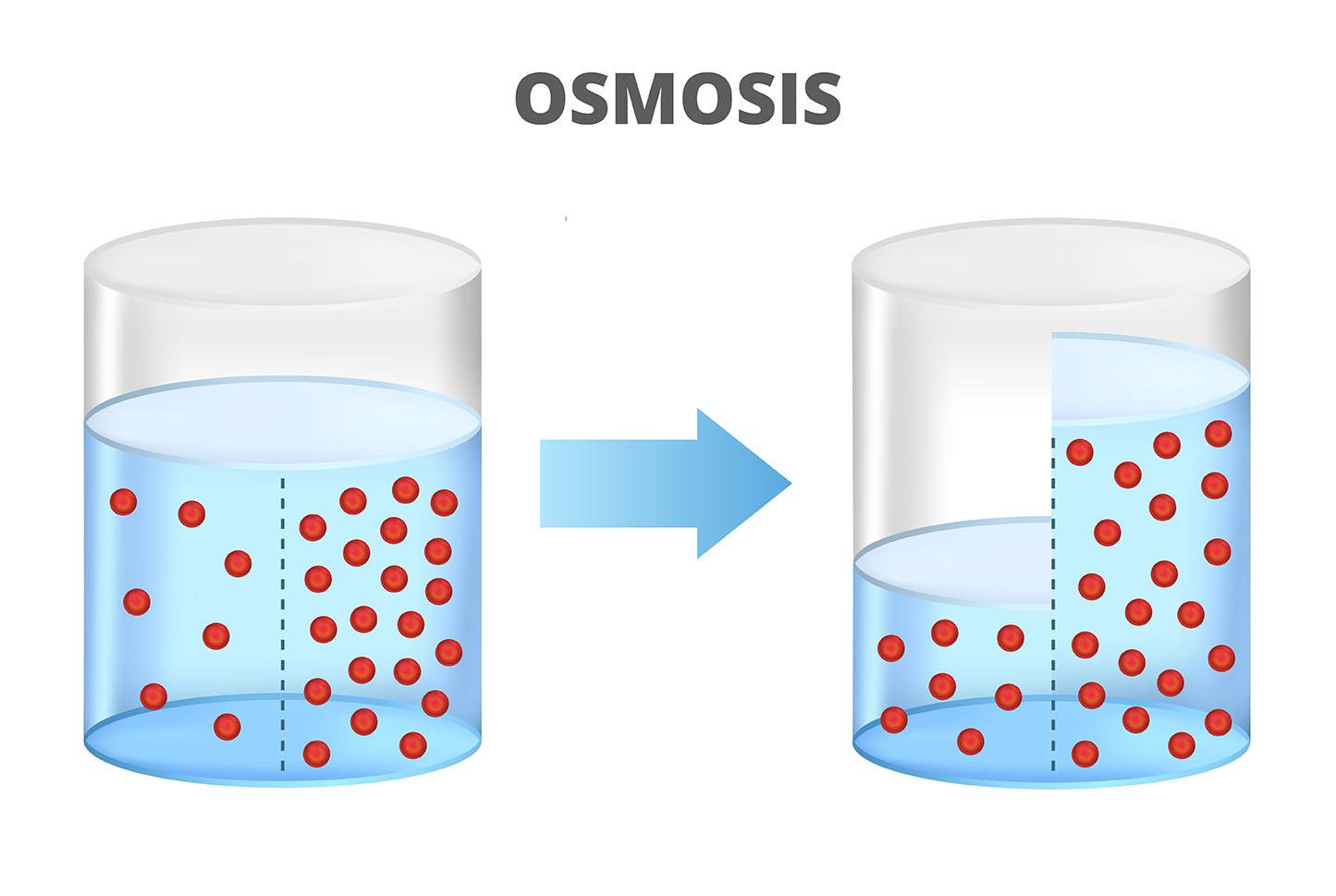
osmosis
Definition
Osmosis is the movement of water molecules from an area where there are a lot of water molecules to an area where there are fewer water molecules. This happens through a semi-permeable membrane, which is a thin layer that only lets water molecules through.
Osmosis is important for plants and animals. Plants use osmosis to take in water from the soil. Animals use osmosis to take in water from their environment.
Here is an example of osmosis:
- If you put a carrot in a bowl of salt water, the water molecules will move from the salt water to the carrot. This is because there are more water molecules in the saltwater than there are in the carrot.
- The carrot will start to shrink because it is losing water. The saltwater will start to swell because it is gaining water.
How can the word be used?
Osmosis is a passive process, meaning that it does not require energy.

Different forms of the word
Noun: The diffusion of a solvent through a semipermeable membrane from an area of high concentration to an area of low concentration.
Adjective: Relating to osmosis.
Etymology
The word "osmosis" comes from the Greek words "en" (in) and "osmos" (thrust).
The word "osmosis" was first used in English in the 19th century. It was used to refer to the diffusion of a solvent through a semipermeable membrane.
Question
What does osmosis mean?